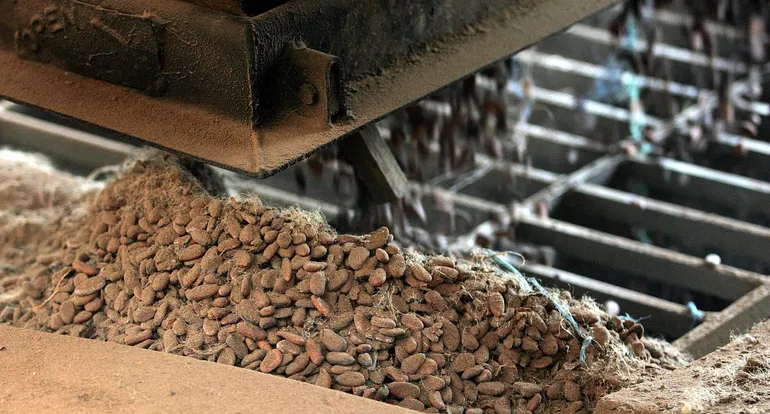Hershey looks to prioritize sustainable cocoa sourcing

Dive Brief:
- The Hershey Company is looking to expand on its already 100% independently verified cocoa supply chain by establishing full sourcing visibility for its cocoa volume in both the Ivory Coast and Ghana by 2025, according to its latest ESG report published last week.
- As of December 2023, the company had invested over half (51%) of its $500 million investment commitment, “Cocoa For Good,” which is looking to build “long-term partnerships with farmers where they can professionalize and thrive,” the report said.
- Hershey reached 89% sourcing visibility in 2023, and according to the report, the company is on target to reach its goal of having 100% of its cocoa farmers polygon mapped in both regions by 2025.
Dive Insight:
The Hershey Company hopes its efforts will improve traceability and achieve its commitment to establish a deforestation-free supply chain.
The chocolate industry has been hampered by cocoa’s supply chain woes over the past year, and the side effects are being passed along to consumers through shortages and higher prices. As a result, some producers said they would experiment with new product formulations to avoid price hikes.
Besides cocoa, the report revealed five other priority areas for Hershey, including responsible sourcing and human rights, environment, people, youth and community.
“Hershey remains focused on strengthening our business and making the biggest impact in our focus areas,” said Michele Buck, CEO of The Hershey Company. “While we have more to do on this journey, the collective efforts of our team, in partnership with leading organizations and key stakeholders, will continue to propel us forward.”
Hershey said it plays an important role in improving the cocoa supply chain and the livelihood of farmers, but that some responsibility also lies with its partners.
Some of the company’s partners in its efforts include The Association of Chocolate, Biscuit and Confectionery Industries of Europe, EU Cocoa Coalition, Ghana Cocoa Board, Government of Côte d’Ivoire Ministry of Water Resources and Forests, among others.
A significant part of today’s cocoa supply chain is made up of millions of smallholder rural farmers with low yields and low incomes, especially in West Africa, according to Hershey, and along with easing supply chain issues, it is prioritizing bettering the livelihood of these farmers.
“As a leading chocolate manufacturer, the volatility in cocoa is unprecedented,” said Buck.
“Cocoa remains our top priority and while there is more to do, we are proud of our continued progress toward greater visibility and engagement with the farmers who grow this important ingredient.”
Cocoa aside, the company has also invested in sustainable sourcing for its priority ingredients and materials, reaching 86% of its goal to become fully sustainably sourced by 2025.
Source: fooddive.com

